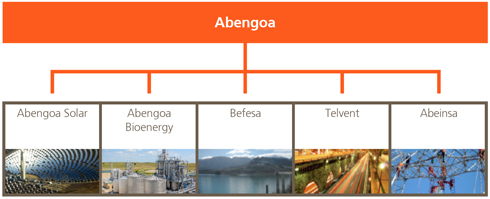 Abengoa
Abengoa
Annual Report 2010
- Activities
- Abengoa and the Innovation
Introduction
Abengoa is a technology company that drives its business via innovation, defined as any knowledge-based change that creates value. This chapter primarily concerns technological innovation, and the research, development and creativity it entails. However, there are other key areas of business endeavor that, though not technology-driven, call for ongoing innovative effort. Innovation in all aspects of business is a value that must guide and engage everyone in the company. An innovative culture encourages people to explore new directions and take the risks this involves. Nevertheless, for Abengoa, innovation is not an end in itself but a means of transforming society towards a more sustainable world.
Innovation is one of the underpinnings of business competitiveness, but it demands strenuous and unceasing commitment and rigorously accurate business and financial management. Competitiveness needs to be sustained over time. One way of achieving this is to broaden the range of inputs to the productive process. But it cannot be a question of quantity alone. The quality of the company’s inputs and, even more, its ability to make use of them can and does lead to higher output supported by higher performance. This is the variable measured by total factor productivity, TFP, the extent to which productivity increases beyond the mere sum of conventional factors such as capital and labor. The Nobel laureate economist Robert Solow, in his study on the growth of TFP in the United States over the first half of the twentieth century, concluded that close to 80 % of United States GDP growth was attributable to TFP. After Robert Solow, technological development is regarded as the variable most contributing to TFP. According to Solow, it is by increasing TFP that technology raises return on capital.
At Abengoa, technological development is a key factor for its infrastructure, environment and energy divisions, via its five business units, and plays a key role in the achievement of its strategic objectives.
 Abengoa and its business units
Abengoa and its business units
Abengoa has accordingly adopted the “innovation ecosystem” approach: The company works in partnership with universities, government agencies, public research institutes, technology centers and other private enterprises to support the creation of knowledge networks, with Abengoa as the driving force. This approach to innovation embraces demonstration projects, research and development facilities in various countries and alliances with third parties.